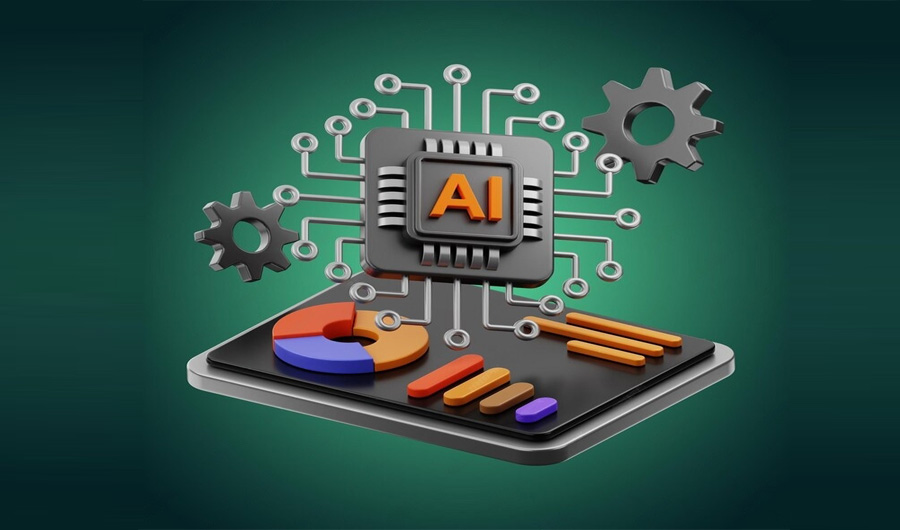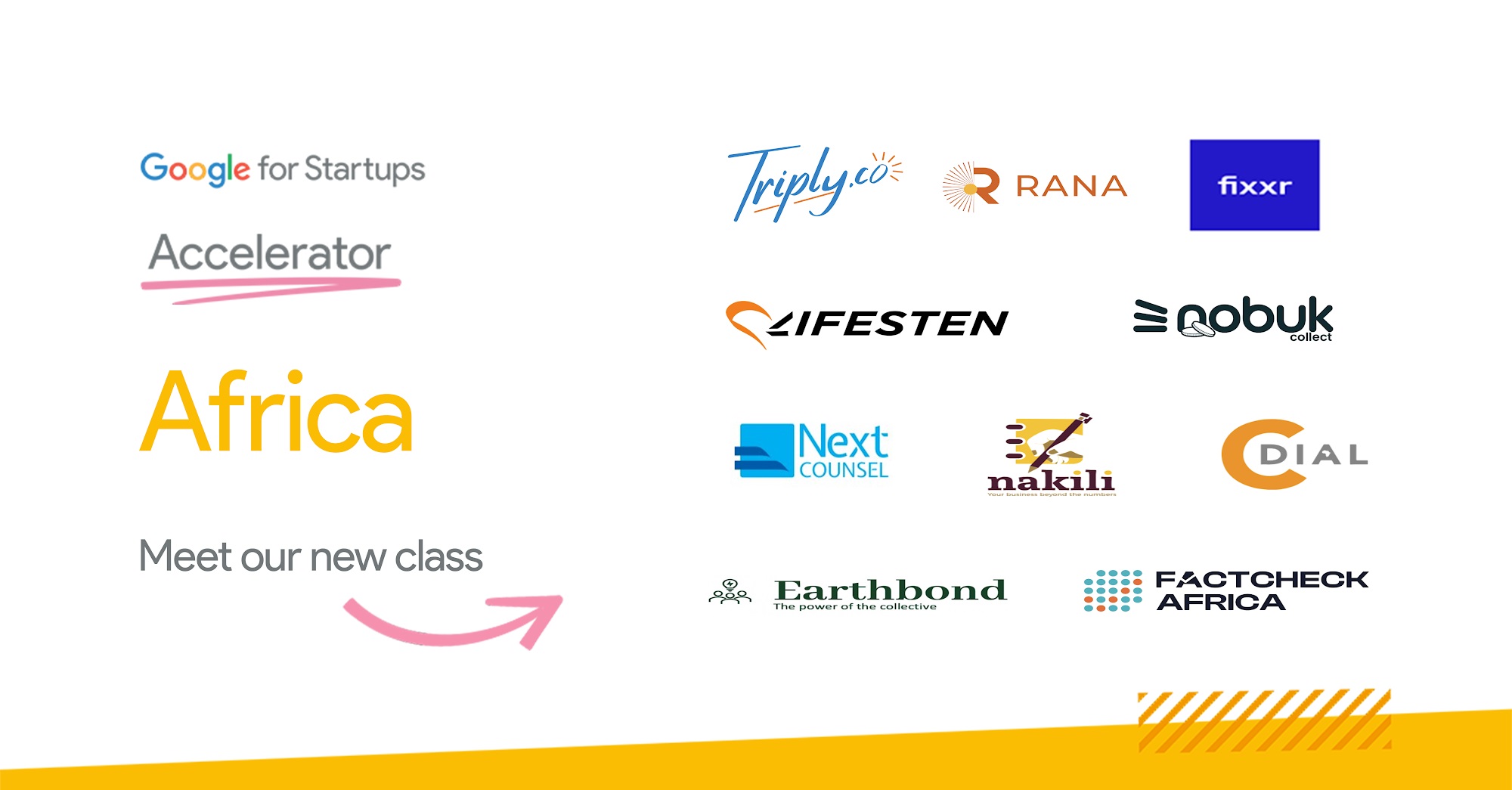Technology
The Role of Artificial Intelligence in Risk Assessment

In today’s rapidly evolving world, understanding and managing risks is more crucial than ever. Artificial Intelligence (AI) has emerged as a powerful tool that can revolutionize the way risk assessments are conducted. By combining advanced algorithms, machine learning, and big data analytics, AI has the potential to enhance accuracy, speed, and efficiency in identifying and addressing risks in various domains.
Understanding Artificial Intelligence and Risk Assessment
Before delving into the role of Artificial Intelligence in risk assessment, it is essential to have a clear understanding of what AI entails and the concept of risk assessment itself.
Artificial intelligence (AI) is a rapidly evolving field that encompasses a wide range of technologies aimed at mimicking human cognitive functions. These technologies include machine learning, natural language processing, computer vision, and more. AI systems are designed to perceive their environment, learn from data, and make decisions to achieve specific goals.
Defining Artificial Intelligence
Artificial intelligence refers to the simulation of human intelligence in machines that are programmed to learn, reason, and make decisions autonomously. These machines can analyze vast amounts of data, extract meaningful insights, and apply them to solve complex problems.
AI has the potential to revolutionize industries by automating tasks, improving efficiency, and enabling new capabilities. From self-driving cars to personalized medicine, AI applications are diverse and impactful.
The Concept of Risk Assessment
Risk assessment, on the other hand, involves the evaluation of potential risks and uncertainties associated with a particular activity, decision, or process. It plays a vital role in numerous fields, including finance, healthcare, and environmental management.
Effective risk assessment requires a systematic approach to identify, analyze, and prioritize risks. By understanding potential threats and their likelihood, organizations can implement strategies to mitigate risks and make informed decisions.
The Intersection of AI and Risk Assessment
As AI technologies continue to advance, they offer exciting opportunities to enhance risk assessment methodologies and practices.
With the rapid evolution of artificial intelligence (AI), the landscape of risk assessment is undergoing a transformative shift. AI is revolutionizing the way organizations evaluate and manage risks by leveraging cutting-edge algorithms and machine learning capabilities.
How AI Enhances Risk Assessment
AI brings several benefits to risk assessment, including increased efficiency, accuracy, and objectivity. Unlike humans, AI algorithms can quickly process vast amounts of data, identify patterns, and predict potential risks. This enables organizations to make well-informed decisions and take proactive measures to mitigate risks.
Moreover, AI empowers risk assessment processes by enabling real-time monitoring and analysis of dynamic risk factors. By continuously analyzing data streams and identifying emerging risks, AI systems provide organizations with a proactive approach to risk management, allowing for timely interventions and strategic decision-making.
Challenges at the Intersection of AI and Risk Assessment
However, there are challenges that need to be addressed when integrating AI into risk assessment processes. These include concerns about data privacy and security, potential biases in algorithms, and the necessary expertise to develop and maintain AI systems.
Ensuring the ethical use of AI in risk assessment is paramount to building trust and credibility in the outcomes generated by AI systems. In light of Quantum AI Global Trading Regulations, organizations must establish robust governance frameworks and compliance measures to uphold data privacy standards and mitigate the risks of algorithmic biases. Additionally, investing in continuous training and upskilling programs for employees is essential to foster a workforce equipped with the knowledge and skills to effectively leverage AI technologies in risk assessment, while adhering to new and evolving international standards.
AI in Different Risk Assessment Areas
The use of AI in risk assessment is not limited to a single domain. It has the potential to revolutionize risk management across various sectors.
AI technology continues to make significant strides in enhancing risk assessment practices, offering a wide range of benefits and applications in diverse fields. By leveraging advanced algorithms and machine learning capabilities, AI can provide valuable insights and predictions that empower decision-makers to proactively address potential risks.
Furthermore, the integration of AI in risk assessment processes is driving innovation and efficiency, enabling organizations to streamline operations, optimize resource allocation, and enhance overall performance.
AI in Financial Risk Assessment
In the financial industry, AI can analyze market trends, historical data, and economic indicators to predict potential risks and market fluctuations. This enables financial institutions to make informed investment decisions, manage credit risks, and prevent fraudulent activities.
The application of AI in financial risk assessment not only enhances risk mitigation strategies but also promotes market stability and fosters investor confidence. By harnessing AI-driven insights, financial institutions can navigate complex market dynamics with agility and precision, ultimately driving sustainable growth and profitability.
AI in Health Risk Assessment
In healthcare, AI can analyze patient data, medical records, and research findings to identify potential health risks or conditions. This can lead to early detection, personalized treatment plans, and improved patient outcomes.
The utilization of AI in health risk assessment is revolutionizing the healthcare landscape, empowering healthcare providers to deliver personalized and proactive care to patients. Through AI-powered risk assessment tools, medical professionals can optimize treatment strategies, improve diagnostic accuracy, and enhance patient well-being and quality of life.
AI in Environmental Risk Assessment
AI can also play a crucial role in environmental risk assessment. By analyzing environmental data, including air and water quality measurements, climate patterns, and species mapping, AI can help identify and mitigate potential risks to ecosystems and human health.
The integration of AI in environmental risk assessment represents a significant milestone in environmental conservation and sustainability efforts. By leveraging AI technologies, environmental experts can gain deeper insights into complex ecological systems, develop targeted risk mitigation strategies, and drive initiatives aimed at preserving biodiversity and safeguarding natural resources for future generations.
The Future of AI in Risk Assessment
As AI continues to advance, so does its potential in transforming the risk assessment landscape.
Predicting Trends in AI and Risk Assessment
Experts predict that AI will continue to evolve, becoming more intelligent and capable of handling complex risk assessment tasks. Machine learning algorithms will become even more accurate and efficient, enabling organizations to make smarter decisions based on real-time data.
Potential Impacts on Various Industries
The integration of AI into risk assessment will have far-reaching impacts on different industries. It will lead to improved risk management strategies, better resource allocation, and enhanced decision-making processes. However, these developments also raise ethical considerations that need to be carefully addressed.
Ethical Considerations in AI Risk Assessment
While AI brings significant benefits to risk assessment, it is vital to navigate potential ethical challenges.
Balancing AI Efficiency with Privacy Concerns
As AI relies heavily on data, privacy concerns emerge regarding the collection, storage, and usage of personal information. Striking a balance between the efficiency of AI systems and individuals’ privacy rights is crucial.
Ensuring Fairness and Transparency in AI Risk Assessment
Another important consideration is the potential biases that AI algorithms can inherit from the data they are trained on. Ensuring transparency and fairness in AI risk assessments is essential to avoid discrimination and promote trust in these systems.
Conclusion
Artificial Intelligence is revolutionizing the field of risk assessment, providing organizations with enhanced capabilities to identify, evaluate, and manage risks effectively. While challenges and ethical considerations exist, the ongoing development and responsible integration of AI into risk assessment processes hold great promise for a more secure and resilient future.
Technology
Telecom Operators to Issue 14-Day Notice Before SIM Disconnection

By Adedapo Adesanya
Telecommunications operators in Nigeria will now be required to give subscribers a minimum of 14 days’ notice before deactivating their SIM cards over inactivity or post-paid churn, following a fresh proposal by the Nigerian Communications Commission (NCC).
The proposal is contained in a consultation paper, signed by the Executive Vice Chairman and Chief Executive Officer of the NCC, Mr Aminu Maida, and titled Stakeholders Consultation Process for the Telecoms Identity Risks Management Platform, dated February 26, 2026, and published on the Commission’s website.
Under the proposed amendments to the Quality-of-Service (QoS) Business Rules, the Commission said operators must notify affected subscribers ahead of any planned churn.
“Prior to churning of a post-paid line, the Operator shall send a notification to the affected subscriber through an alternative line or an email on the pending churning of his line,” the document stated.
It added that “this notification shall be sent at least 14 days before the final date for the churn of the number.”
A similar provision was proposed for prepaid subscribers. According to the Commission, operators must equally notify prepaid customers via an alternative line or email at least 14 days before the final churn date.
Currently, under Section 2.3.1 of the QoS Business Rules, a subscriber’s line may be deactivated if it has not been used for six months for a revenue-generating event. If the inactivity persists for another six months, the subscriber risks losing the number entirely, except in cases of proven network-related faults.
The new proposal is part of a broader regulatory review tied to the rollout of the Telecoms Identity Risk Management System (TIRMS), a cross-sector platform designed to curb fraud linked to recycled, swapped and barred mobile numbers.
The NCC explained in the background section of the paper that TIRMS is a secure, regulatory-backed platform that helps prevent fraud stemming from churned, swapped, barred Mobile Station International Subscriber Directory Numbers in Nigeria.
It said this platform will provide a uniform approach for all sectors in relation to the integrity and utilisation of registered MSISDNs on the Nigerian Communications network.
In addition to the 14-day notice requirement, the Commission also proposed that operators must submit details of all churned numbers to TIRMS within seven days of completing the churn process, strengthening oversight and accountability in the system.
The consultation process, which the Commission said is in line with Section 58 of the Nigerian Communications Act 2003, will remain open for 21 days from the date of publication. Stakeholders are expected to submit their comments on or before March 20, 2026.
Technology
Silverbird Honours Interswitch’s Elegbe for Nigeria’s Digital Payments Revolution

By Modupe Gbadeyanka
The founder of Interswitch, Mr Mitchell Elegbe, has been honoured for pioneering Nigeria’s digital payments revolution.
At a ceremony in Lagos on Sunday, March 1, 2026, he was bestowed with the 2025 Silverbird Special Achievement Award for shaping Africa’s financial ecosystem.
The Silverbird Special Achievement Award recognises individuals whose innovation, vision, and sustained impact have left an indelible mark on society.
Mr Elegbe described the award as both humbling and symbolic of a broader journey, saying, “This honour represents far more than a personal milestone. It reflects the courage of a team that believed, long before it was fashionable, that Nigeria and Africa could build world-class financial infrastructure.”
“When we started Interswitch, we were driven by a simple but powerful idea that technology could democratise access, unlock opportunity, and enable commerce at scale.
“This recognition by Silverbird strengthens our resolve to continue building systems that empower businesses, support governments, and expand inclusion across the continent,” he said when he received the accolade at the Silverbird Man of the Year Awards ceremony attended by several other dignitaries, whose leadership and contributions continue to shape national development and industry transformation.
In 2002, Mr Elegbe established Interswitch after he was inspired by a bold conviction that technology could fundamentally redefine how value moves within and across economies.
Under his leadership, the company has evolved into one of Africa’s foremost integrated payments and digital commerce companies, powering financial transactions for governments, banks, businesses, and millions of consumers.
Today, much of Nigeria’s electronic payments ecosystem traces its foundational architecture to the systems and rails established under his leadership.
“Mitchell’s journey is inseparable from Nigeria’s digital payments evolution. His foresight and resilience helped establish foundational infrastructure at a time when the ecosystem was still nascent.
“This recognition affirms not only his personal legacy, but the broader impact of Interswitch in enabling commerce and strengthening financial systems across Africa,” the Executive Vice President and Group Marketing and Communications for Interswitch, Ms Cherry Eromosele, commented.
Technology
SERAP Seeks FCCPC Probe into Big Tech’s Impact on Nigeria’s Digital Economy

By Adedapo Adesanya
The Socio-Economic Rights and Accountability Project (SERAP) has called on the Federal Competition and Consumer Protection Commission (FCCPC) to urgently investigate major global technology companies over alleged abuses affecting Nigeria’s digital economy, media freedom, privacy rights and democratic integrity.
In a complaint addressed to the chief executive of FCCPC, Mr Tunji Bello, the group accused Google, Meta (Facebook), Apple, Microsoft (Bing), X, TikTok, Amazon and YouTube of deploying opaque algorithms and leveraging market dominance in ways that allegedly undermine Nigerian media organisations, businesses, and citizens’ rights.
The complaint, signed by SERAP Deputy Director, Mr Kolawole Oluwadare, urged the commission to take measures necessary to urgently prevent further unfair market practices, algorithmic influence, consumer harm and abuses of media freedom, freedom of expression, privacy, and access to information.”
SERAP also asked the FCCPC to convene a public hearing to investigate allegations of algorithmic discrimination, data exploitation, revenue diversion, and anti-competitive conduct involving the tech giants.
According to the organisation, dominant digital platforms now act as private gatekeepers of Nigeria’s information and business ecosystem, wielding enormous influence over public discourse and market competition without sufficient transparency or regulatory oversight.
“Millions of Nigerians rely on these platforms for news, information and business opportunities,” SERAP stated, warning that opaque algorithms and offshore revenue extraction models pose both economic and human rights concerns.
The group argued that the alleged practices threaten media plurality, consumer protection, privacy rights, and the integrity of Nigeria’s forthcoming elections.
SERAP pointed to actions taken by the South African Competition Commission, which investigated Google over alleged bias against local media content, adding that the South African probe reportedly resulted in measures including algorithmic transparency requirements, compliance monitoring and financial remedies.
SERAP urged the FCCPC to take similar steps to safeguard Nigerian media and businesses.
The organisation maintained that if established, the allegations could amount to violations of Sections 17 and 18 of the Federal Competition and Consumer Protection Act (FCCPA), which prohibit abuse of market dominance and anti-competitive conduct.
SERAP stressed that the FCCPC has statutory authority to investigate and sanction conduct that substantially prevents, restricts or distorts competition in Nigeria.
It also warned that failure by the Commission to act promptly could prompt the organisation to pursue legal action to compel regulatory intervention.
Citing concerns reportedly raised by the Nigerian Press Organisation (NPO), SERAP said big tech companies have fundamentally altered Nigeria’s information environment, creating what it described as a structural imbalance of power that threatens the sustainability of professional journalism.
Among the allegations listed are: Algorithms controlled outside Nigeria determining content visibility, monetisation of Nigerian news content without proportionate reinvestment, offshore extraction of advertising revenues, limited discoverability of Nigerian websites and platforms, and lack of transparency in ranking and recommendation systems.
SERAP argued that declining revenues in the Nigerian media industry have led to shrinking newsrooms, closure of bureaus, and the emergence of news deserts, weakening journalism’s constitutional role in democratic accountability.
The organisation further warned that algorithmic opacity and data-driven micro-targeting could influence voter exposure to information ahead of Nigeria’s forthcoming elections, raising concerns about electoral fairness and transparency.
-

 Feature/OPED6 years ago
Feature/OPED6 years agoDavos was Different this year
-
Travel/Tourism10 years ago
Lagos Seals Western Lodge Hotel In Ikorodu
-

 Showbiz3 years ago
Showbiz3 years agoEstranged Lover Releases Videos of Empress Njamah Bathing
-

 Banking8 years ago
Banking8 years agoSort Codes of GTBank Branches in Nigeria
-

 Economy3 years ago
Economy3 years agoSubsidy Removal: CNG at N130 Per Litre Cheaper Than Petrol—IPMAN
-

 Banking3 years ago
Banking3 years agoSort Codes of UBA Branches in Nigeria
-

 Banking3 years ago
Banking3 years agoFirst Bank Announces Planned Downtime
-

 Sports3 years ago
Sports3 years agoHighest Paid Nigerian Footballer – How Much Do Nigerian Footballers Earn




















